Iloilo City, Philippines – 08 July 2025
The University of San Agustin (USA) opened its first Augustinian International Research Conference (AIR-C) today, marking the culmination of the institution’s 120th founding anniversary. The three-day event, themed “Embracing Change and Transformation in the Age of AI,” brings together scholars, industry leaders, and policymakers to examine artificial intelligence’s impact on ethics, education, healthcare, and society.
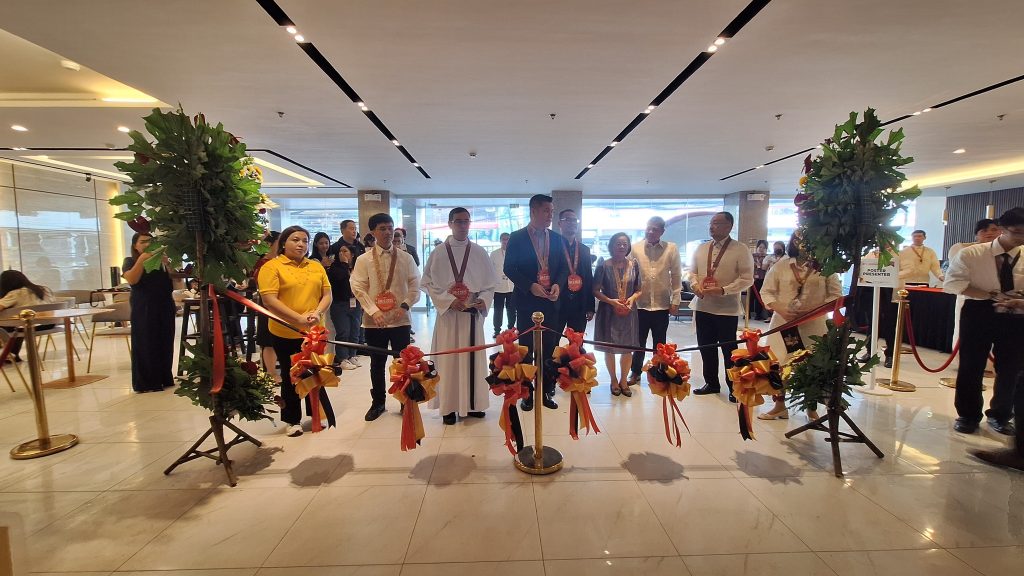
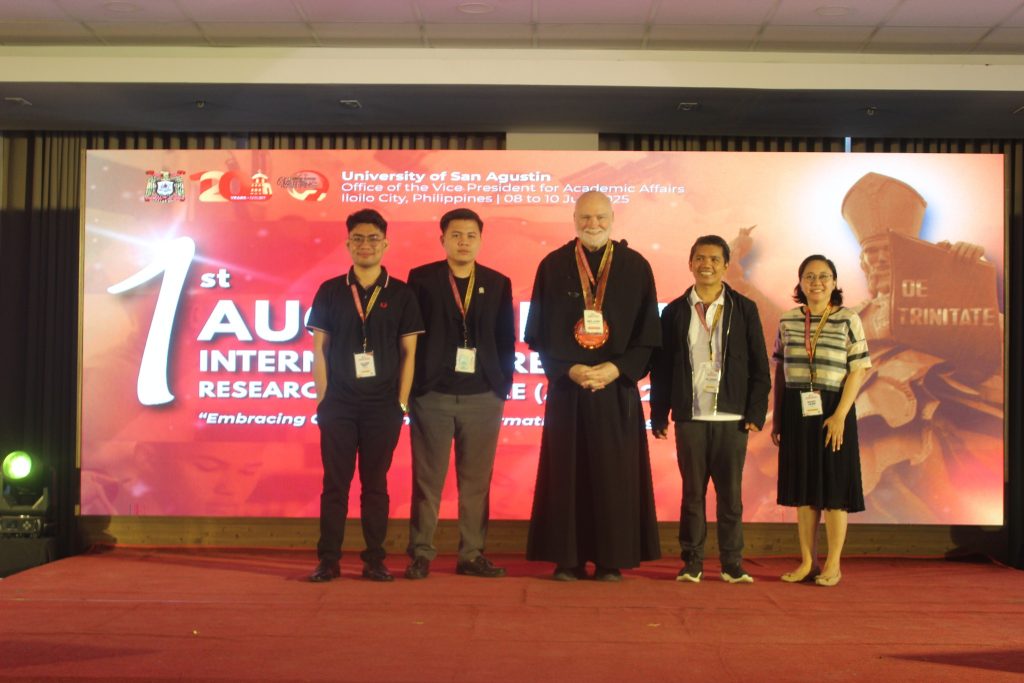
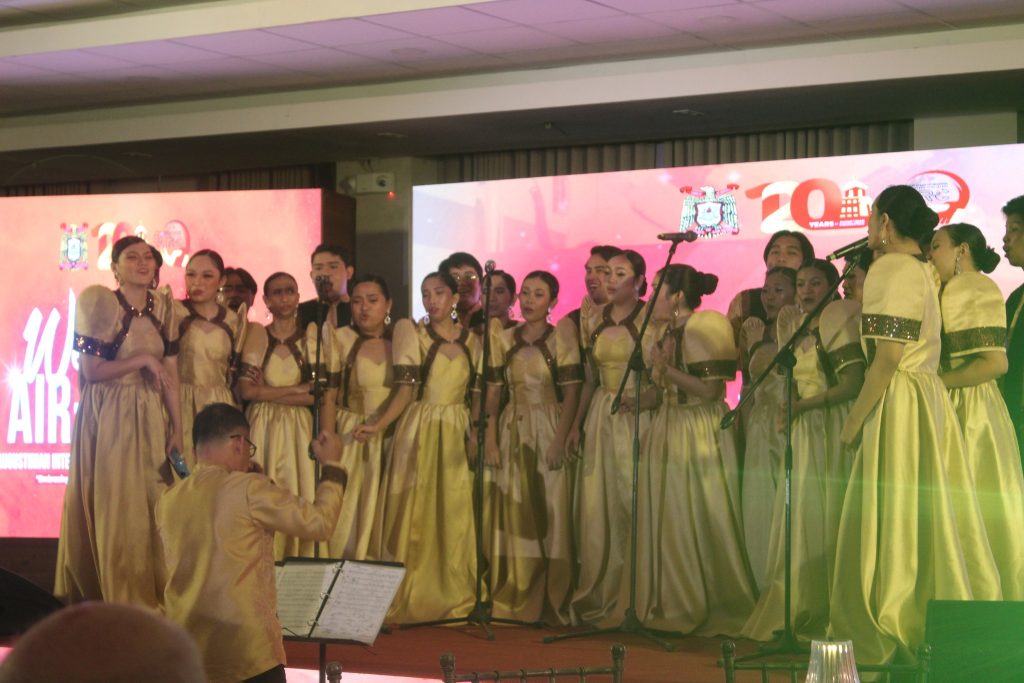
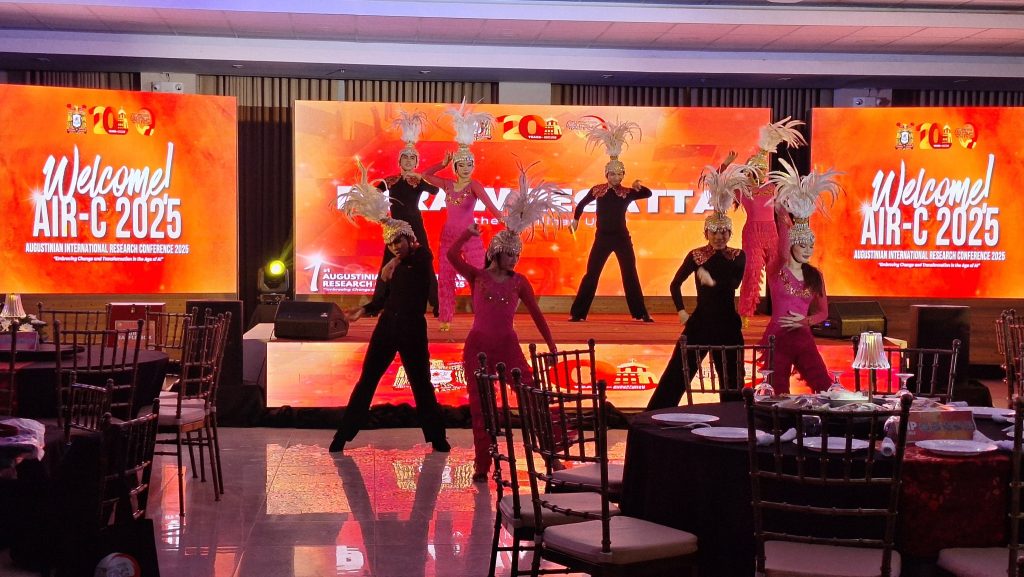
The conference began with ribbon-cutting ceremonies and exhibits at the CPMT Building. University President Rev. Father Arnel S. Dizon, OSA, described AI as “a present reality reshaping disciplines across the academic spectrum.” He emphasized that while AI offers potential for innovation and progress, it also poses challenges to value systems and social transformation. Fr. Dizon called on academics to serve as “custodians of wisdom and ethical responsibility,” grounding their work in Augustinian intellectual tradition.
Ms. Maria Matilde Treñas, Special Secretary to City Mayor Raisa Treñas, praised the conference as fitting for the university’s anniversary celebration. She highlighted how the event embodies Augustinian values of Veritas (truth), Unas (unity), and Caritas (charity), ensuring scholarly inquiry remains rooted in ethics and social responsibility.
Dr. Roslin Robles, representing CHED Regional Director Dr. Raul C. Alvarez, Jr., outlined the evolving landscape of Philippine higher education. She emphasized the strategic importance of enabling institutions to participate in national and international research, noting that universities serve as platforms for research, innovation, and extension essential for competitiveness in the global knowledge economy.
Associate Prof. Dr. Thanapan Laiprakobsup, Acting Executive Director from the ASEAN University Network opened the plenary sessions with insights on ASEAN’s AI-driven higher education transformation. He outlined AUN’s “One Platform One Protocol” framework, which streamlines digital systems to reduce costs and enhance governance. The initiative includes AUN-TEPL (AI-powered personalized learning) and the ASEAN Cyber University Project for regional collaboration. Dr. Laiprakobsup urged Philippine institutions to join these efforts, positioning AI as a tool for equitable education across Southeast Asia.
The afternoon’s parallel sessions demonstrated interdisciplinary dialogue across four distinct clusters:
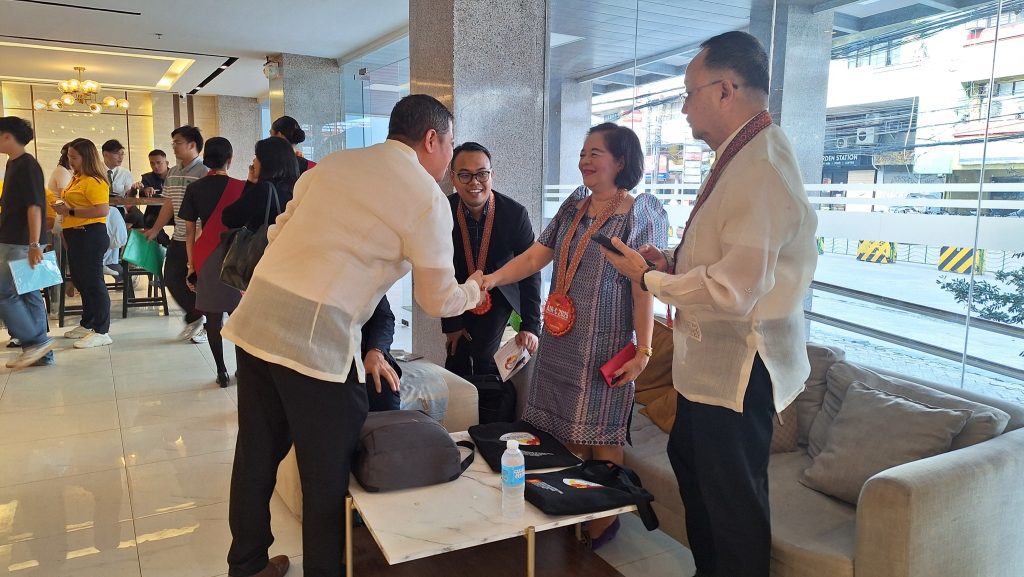
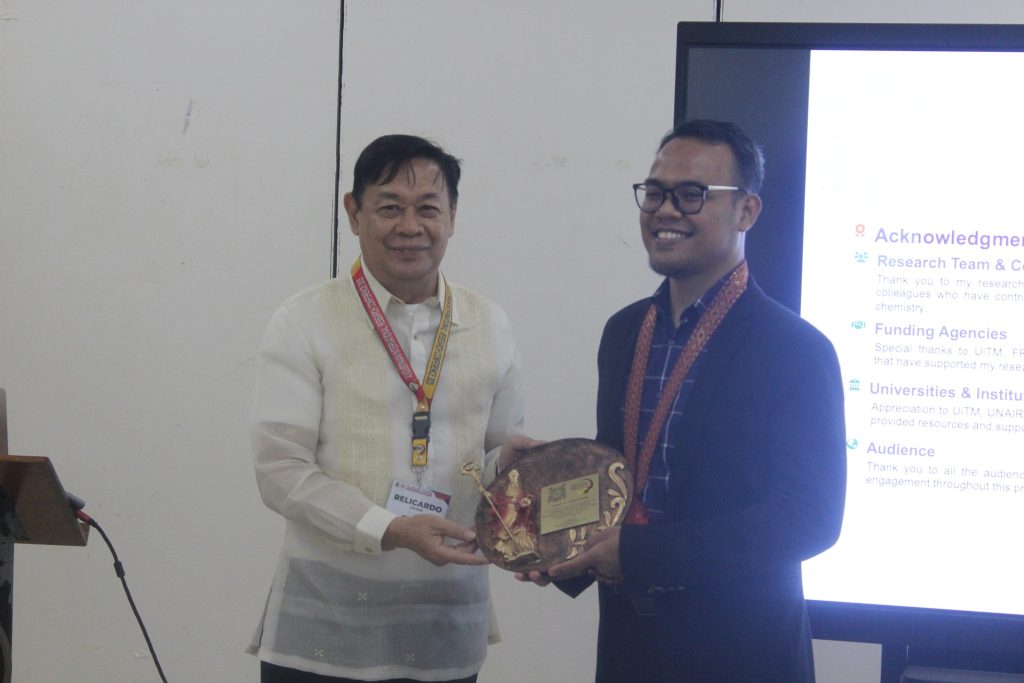
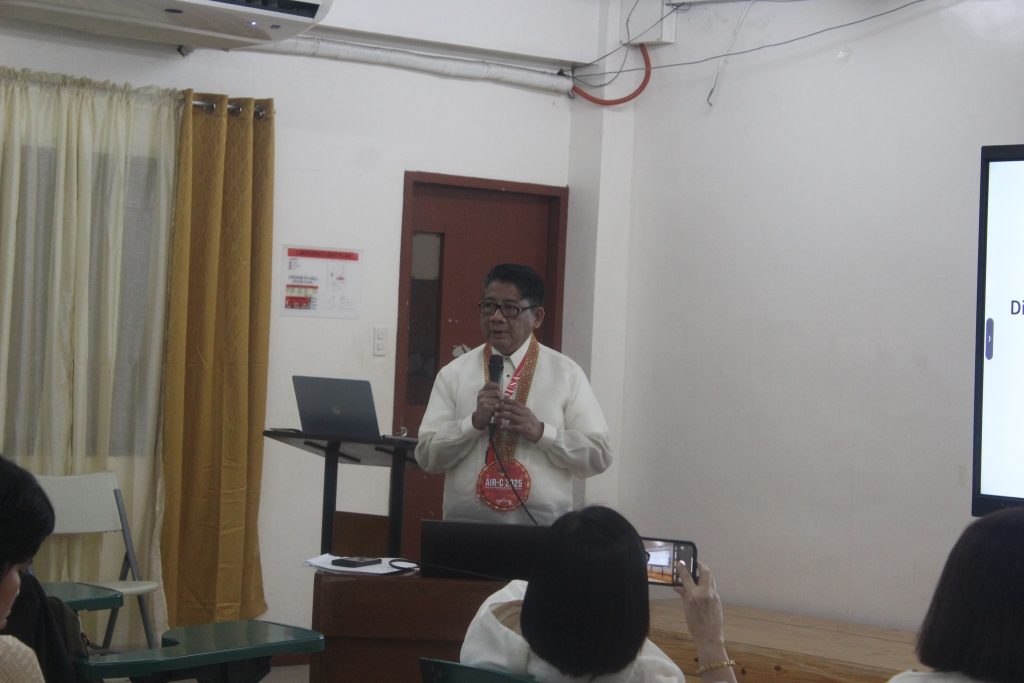
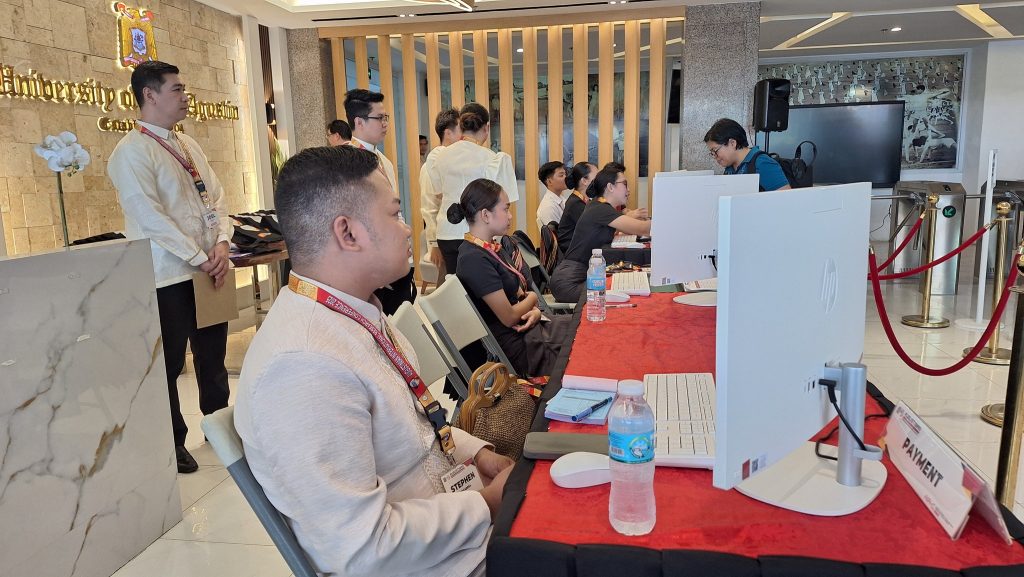
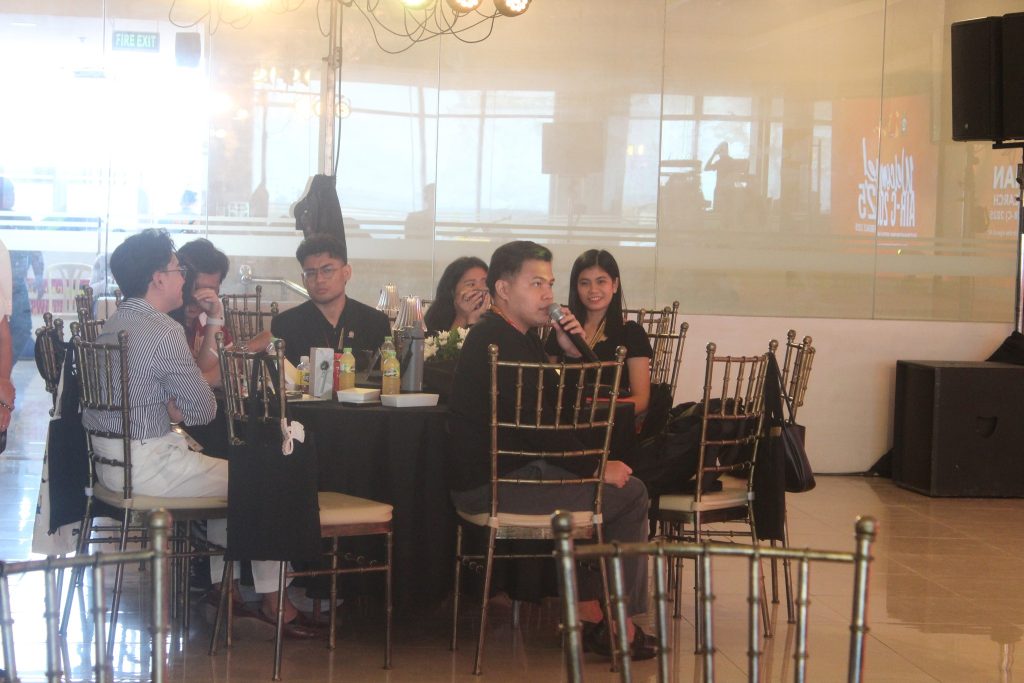
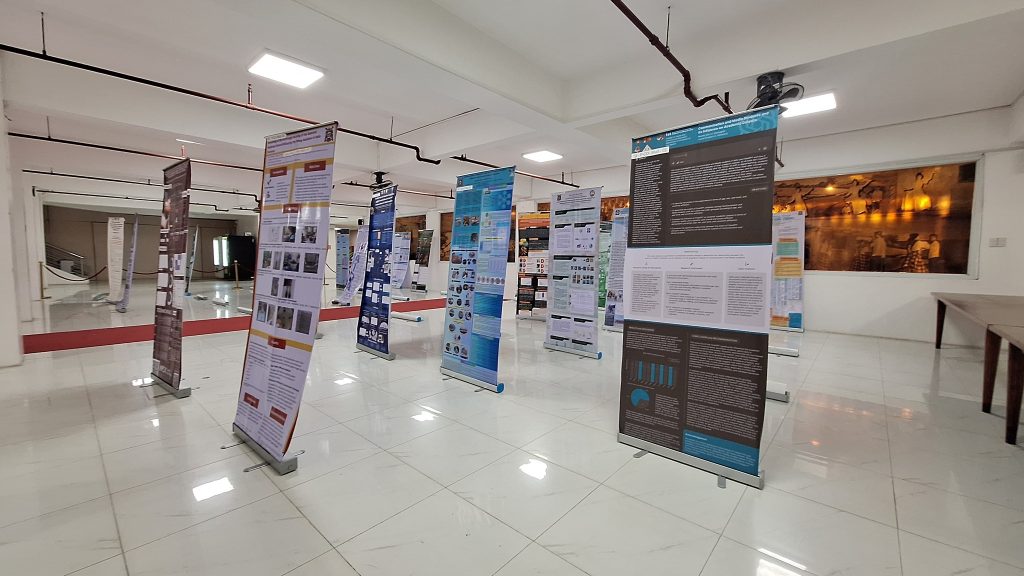
Business and Education: Rev. Gary N. McCloskey, OSA introduced his “H.O.P.E.” framework (Humble Hearts, Obedience to Truth, Pointing to Truth), merging Augustinian spirituality with AI ethics. Other presentations examined AI’s role in enhancing teaching methods while maintaining human development focus.
Healthcare: Dr. Rozzano Locsin emphasized AI’s supportive role in nursing, enhancing rather than replacing compassionate care. Research covered AI-guided ergonomic solutions and pharmaceutical innovations.
Science and Technology: Dr. Shahrul Nizam Bin Amad presented breakthrough work in AI-assisted chemistry research. Sessions demonstrated AI’s ability to revolutionize STEM education and research methodologies.
Humanities: Prof. Isidoro Cruz pioneered discussions on digital humanities, demonstrating how AI-powered “distant reading” techniques could analyze literary works at unprecedented scale while maintaining scholarly rigor. His presentation bridged traditional philology with technology, offering new methodologies for textual analysis.
Across all disciplines, presentations revealed common threads: the importance of ethical frameworks, the need for human-centered approaches to technology, and AI’s potential as a tool for positive transformation when guided by sound values. The emphasis remained on AI as an enhancer rather than replacement of human expertise.
The day concluded with a cultural performance by the USA Troubadours, Jas Querdas, and USA Choir and Troubadours (USACT), and a fellowship dinner, reinforcing the conference’s spirit of unity and reminding attendees that human creativity and community remain irreplaceable in the age of artificial intelligence.
Conference Chair Dr. Regina Aileen Vergara captured the event’s significance: “AIR-C 2025 is not just a platform for research—it’s a catalyst for global partnerships to shape an AI future rooted in human dignity.”
The opening day established key themes for the conference: ethical AI development integrated with Augustinian values, regional collaboration through ASEAN’s digital transformation model, human-centered technology, and interdisciplinary dialogue across complex AI challenges.
The University of San Agustin’s inaugural AIR-C positions itself as a catalyst for thoughtful innovation that honors both technological advancement and human dignity, contributing meaningfully to the global conversation about AI’s role in shaping our shared future.


